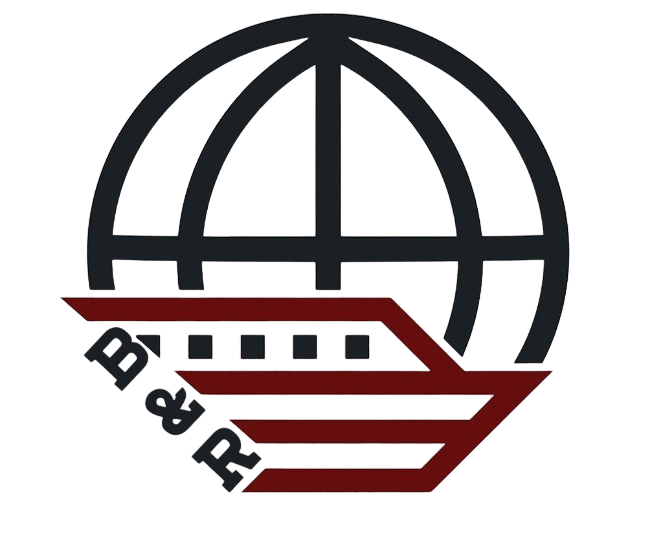freight logistics management ,freight logistics management،The practice of efficiently and strategically transferring freight across a network from its point of origin to its desired destination while utilizing a variety of transportation methods, middlemen, and technologies is known as freight management.
To carry freight efficiently and affordably, a procedure is used that makes use of physical resources like trucks, distribution facilities, and warehouses, as well as technology.
When compared to the specific operations in the freight management service, logistics management is the larger portion of the total service that comprises all the primary set of actions. The main endeavors connected to logistics management are listed below.
Using terms from the transportation industry, logistics management activities are defined as including inbound and outbound transportation management, warehousing, fleet management, handling of goods, order fulfillment, outlining the logistics network, managing inventory, supply/demand supervision, and strategizing of third-party service providers in logistics service.
Obtaining and sourcing, accurate customer service, production scheduling and administration, gathering, and packing are the main components of logistics management activities. All significant phases of the entire transportation process, including planning, operational, and strategic tasks, are included in logistics management.
Additionally, it is crucial to properly integrate logistics operations with other professions like manufacturing, sales, marketing, investing, and information technology.
Freight management has grown to be a crucial aspect of the business
In order to effectively streamline transportation services, freight management is a critical and important procedure that calls for the collaboration of numerous essential operations, associates, and technology. To guarantee success, many related tasks are carried out concurrently.
No matter how big or small a business is, it rarely has the team or expertise to manage its freight management service. It is rarely effective for various businesses to handle all aspects of freight management on their own.
For effective freight management, a large majority of enterprises seek partnerships with seasoned transportation and logistics firms. This has shown to be successful in lowering expenses, boosting productivity, and offering the finest customer service.
Also, Businesses have long placed a premium on being able to deliver freight on schedule, in the correct quantity, without damage, and for the lowest possible price.
This skill is more crucial than ever in the competitive environment of today because of things like leaner shipper inventories, just-in-time manufacturing, rising labor and warehousing costs, smaller delivery windows, and consumer fulfillment expectations fueled by e-commerce.

What are the various truck-based freight management options?
Private carriage, common carriage, and dedicated contract carriage are the three main truck freight management choices. Shippers who choose private transportation want to control their own fleet of vehicles and drivers. In common carriage, freight is transported on an as-needed and transactional basis by numerous third-party transportation companies.
With dedicated contract carriage (DCC), a strategy that is growing in popularity, shippers can entirely outsource the operation and management of their fleet to a third-party logistics provider (3PL) or lead logistics provider while yet enjoying the same fixed capacity and control the private carriage (LLP). In the case of DCC, the 3PL controls the driver’s hire and maintains the truck fleet, and ensures safe, on-time delivery in accordance with the shipper’s specifications.
What qualities should you consider while picking a partner in freight management?
It is crucial that shippers select a freight management partner with the appropriate level of logistical experience and organizational and cultural fit. Here are several significant cautionary signs: Does the 3PL/LLP have experience successfully managing a variety of freight types over a lengthy period of time? How adaptable is the 3PL/LLP to shifting market conditions, consumer preferences, and supply-chain disruptions?
What infrastructure, technology, and staff resources does the 3PL / LLP offer? Does the 3PL/LLP have a significant presence across a number of industries? In the current, extremely cutthroat logistics business, cross-industry competence is crucial. Is the 3PL/LLP a pioneer in terms of the technology it uses and the logistical solutions it has implemented? Can the 3PL/LLP demonstrate that it is on the cutting edge of technology? Is the 3PL/LLP stable financially and insured? Does the 3PL/LLP have a solid brand and reputation in the industry?
What are the basics of logistics management?
This includes customer service orders, shipment planning, transportation, warehousing, physical inventory control, packaging and unitization, and reverse logistics. Managing these four core processes requires companies to adopt a cross-functional team or matrix organizational structure.
key components of freight management logistics
Communication
The right decisions affecting finances, production, engineering, marketing, transport, warehousing, purchasing, and inventory management are made in collaboration with businesses by logistics companies.
Tracking and Tracing
A Transportation Management System, or TMS, is specialized software that Freight Forwarders commonly use to trace and monitor shipments and make the entire journey of any freight transparent.
This aids logistics management in the development of more effective processes, the enhancement of customer service, and cost savings.

Warehousing and Distribution
For your supply chain, being diligent in the warehouse and distribution space can be beneficial. Here, there are lots of chances to succeed as well as make expensive errors. Freight is priceless to both buyers and sellers, therefore reliable warehousing and distribution practices aid logistics in building relationships with partners and gaining their trust.
Customs
When goods are entering or departing a country, customs brokers provide documentation to shippers to show that the necessary customs procedures have been completed and the commodities have been cleared for shipment.
The paperwork is lengthy for both exports and imports, and the laws might sometimes differ from one country or port to another. Logistical mistakes can be made while importing or exporting freight without the right attention from a certified customs broker, which can be costly in terms of time, money, and relationships.
Insurance
Experts in the field estimate that cargo theft is a $30 billion industry each year. While this is undoubtedly the most terrifying hazard to your goods, it is by no means the only undesirable scenario. A number of insurance alternatives are offered by some forwarders. Ask yours if they can set you up with a strategy that works for your cargo.


